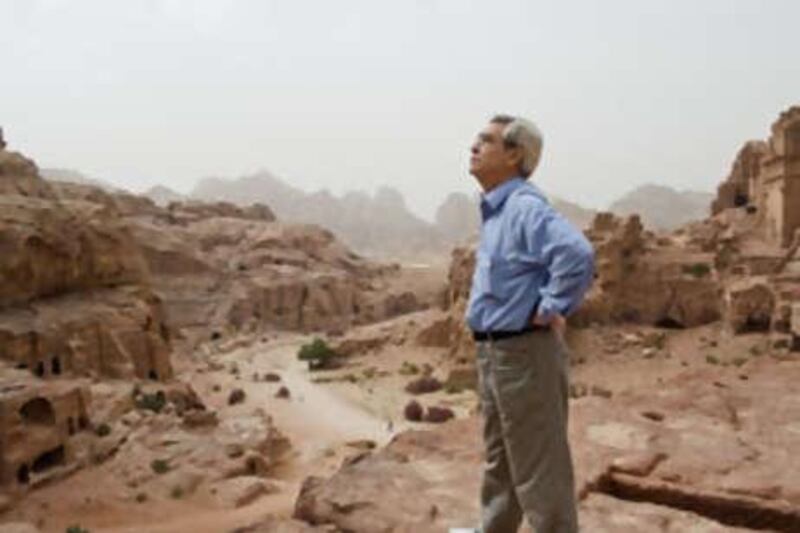DUBAI // A Jordanian scientist who has devoted his life to preserving the ancient city of Petra yesterday became the first Arab to receive a prestigious award given for work that benefits the world. Talal Akasheh, a professor of chemistry at the Hashemite University in Zarqa, Jordan, was named a laureate in the Rolex Awards for Enterprise.
The 32-year-old prize honouring achievement in science, technology, exploration, cultural heritage and the environment was awarded in Dubai. It was the first time the awards have been held in the Middle East. Dr Akasheh has spent decades developing a detailed computer map of Petra to help conserve the 2,500-year-old city carved from rock. The city is being eroded by the weather and the thousands of tourists who visit it every year.
Dr Akasheh will receive US$100,000 (Dh367,000) to help him complete the project, which he estimates will take another two years. "It is the starting process, like a diagnostic exercise to show what is happening so we can better understand it and better protect it," he said. "Nature is a very strong force and you cannot stop natural weathering completely. "The idea is to try and reduce its effects and slow it down, but we do not advocate closing the sites to people."
Dr Akasheh first saw Petra in the early 1980s, but said part of the reason he was drawn to work on it was that his ancestors had lived in a small village just a few kilometres from the site around 200 years ago. "There is a sense of nostalgia and going back to my roots that I thought was interesting to work with." A total of five people are given the Rolex Awards every two years. This year's other laureates were from all over the world and have worked on projects in many different fields.
Tim Bauer, an engineer from the US, was commended for his work in making rickshaws in the Philippines more efficient and less polluting. Andrew McGonigle, from Scotland, won for trying to find new ways to predict volcanic eruptions using remote-control helicopters. Andrew Muir, from South Africa, developed a pioneering programme that gives training and opportunities to young people orphaned by Aids.
And Elsa Zaldivar, from Paraguay, developed low-cost building materials out of recycled plastic and loofah. Five associate laureates were given $50,000 each. All of the money is to be spent on their projects, although winners also receive inscribed Rolex gold watches. gmccleneghan@thenational.ae






